London riots 2011: 'We were getting hit all the time with missiles'
- Published
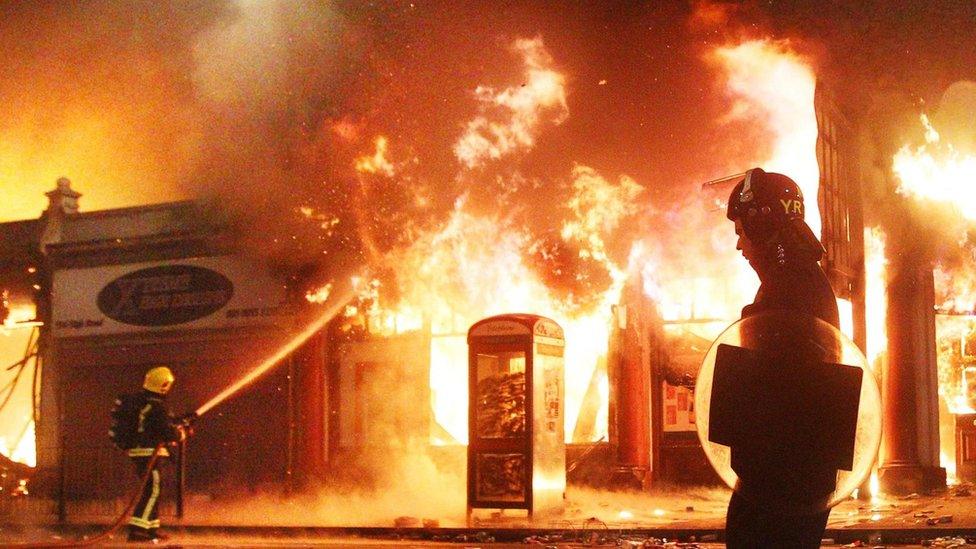
During the summer riots in 2011 police officers came under attack from thousands of people involved in civil unrest and looting. Lawlessness broke out in cities across England in perhaps the largest example of disorder in post-war Britain.
Here, two former Metropolitan Police officers describe what it was like policing London, where the riots began.

The view from the front line
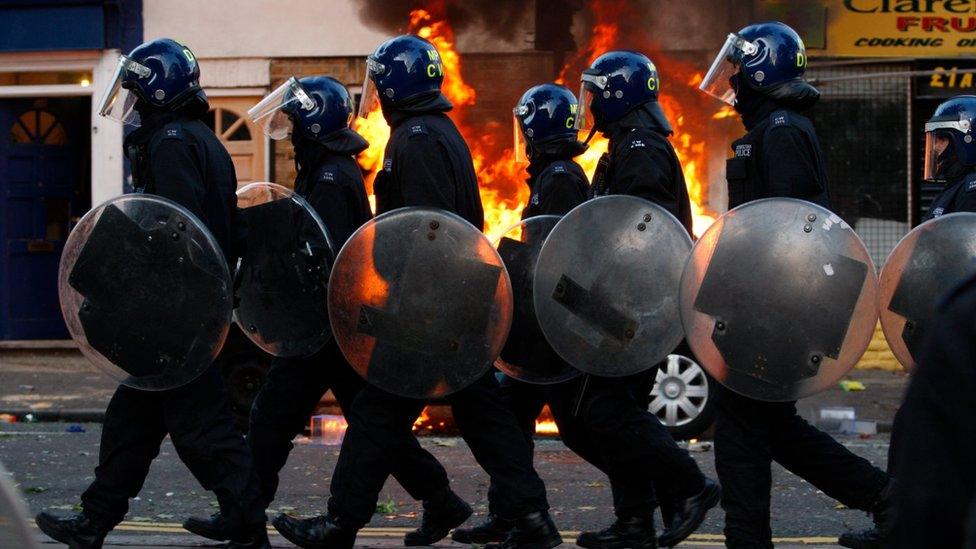
The riots began following a protest in Tottenham over the shooting of Mark Duggan by police.
Sgt Simon Willmott and a fellow officer filming the disorder found themselves facing a violent mob of several hundred people.
He only had a see-through plastic shield to protect himself.
"I was on the front with the shields with the other officer who was doing the filming, and we were getting hit," he said.
The pair were hit with bottles and fruit.
"It just seemed surreal. We were then getting attacked with tins of baked beans and soup. We weren't trained for that.
"We were getting hit all the time with missiles. I thought it is only going to be a matter of time when we will get hit with something that will cause me serious injury."
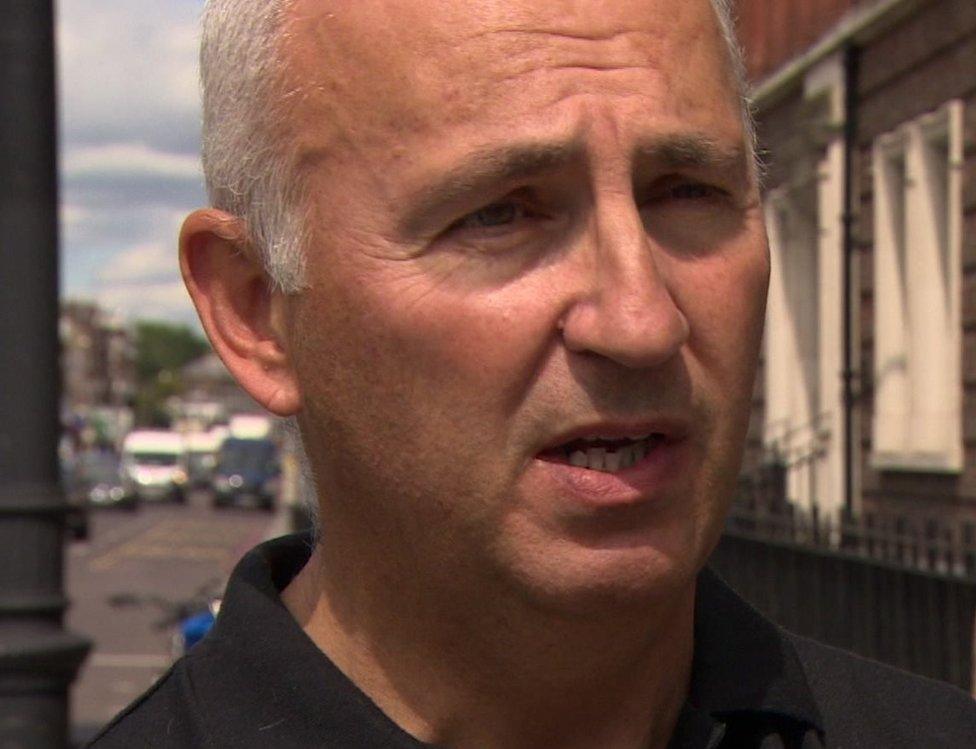
Former Met Police sergeant Simon Willmott said he was conscious gangs operated in Tottenham and the rioters could be armed
While not specifically afraid for his life, at the back of his mind was the knowledge he could be shot at too.
"Being in an area such as this [Tottenham, north London] with the link to firearms that it has, there's that risk of threat as well," he added.
Flitting through his mind was the thought: "Is a gunman going to come out of the rioters and suddenly shoot at you?"
Years of training and experience stopped him from being paralysed with fear though.
"You are working with your colleagues who you trust and you're there to do a job. At the end of the day, whilst there were several hundred, if not thousand, people causing destruction on the streets of Tottenham, we were there to protect many other thousands that were in that area."
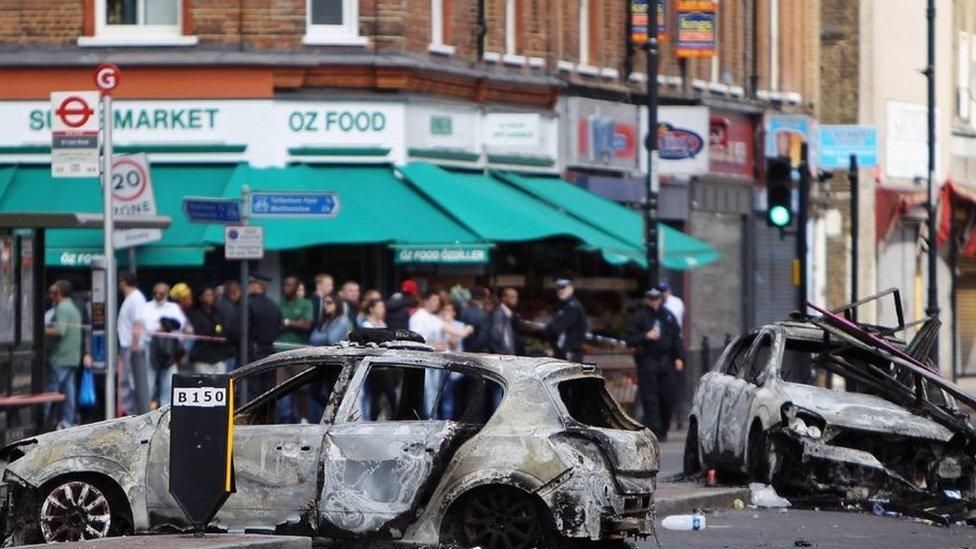
Mr Willmott, a police officer of 32 years, retired from the Met in 2013, but for him the memories of 2011 are still vivid.
"I was involved in policing many violent disorders in my career, but this was without doubt the most serious one.
"It went on for the longest, the intensity was quite overwhelming and the destruction on the night will forever stay in my mind."
Buildings burned down, windows were smashed and glass, bottles and other debris clogged the roads.
In his experience "serious disorders don't last long".
"I expected this one to sort of peak-out quite soon, but it just seemed to go on, and on, and on."
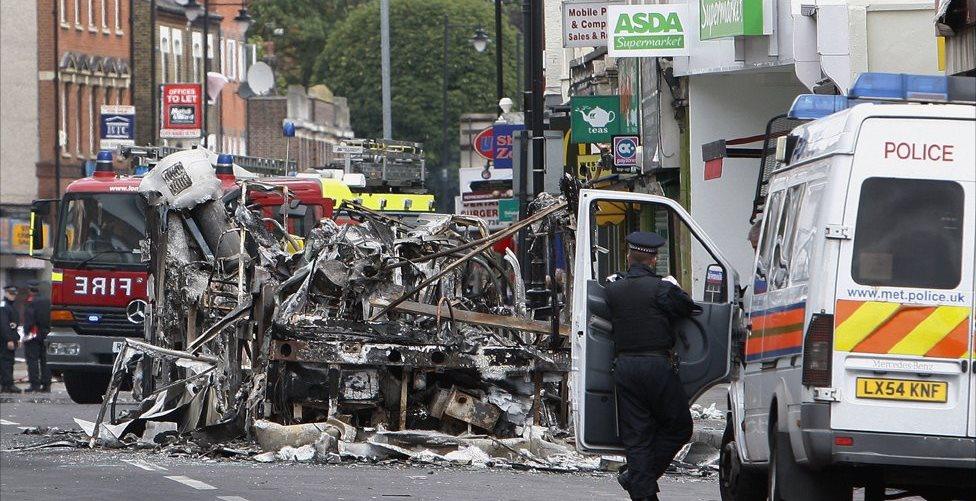
It was light when we he started his shift and it was light when he and his colleagues finished the following morning as more officers moved in to replace them.
He said walking down Tottenham's High Road on the second day of the riots was like surveying a "war-torn scene".
Afterwards he spent hours poring through the tapes he and his colleague had filmed to see if they could identify any of the rioters and looters.
"It was an opportunists' night, people came and seized what was a peaceful demonstration - and in some eyes a justifiable one - and turned that around and attacked the community."
"They wanted to hurt people, regardless, I think, of who they were."

The view from the control room
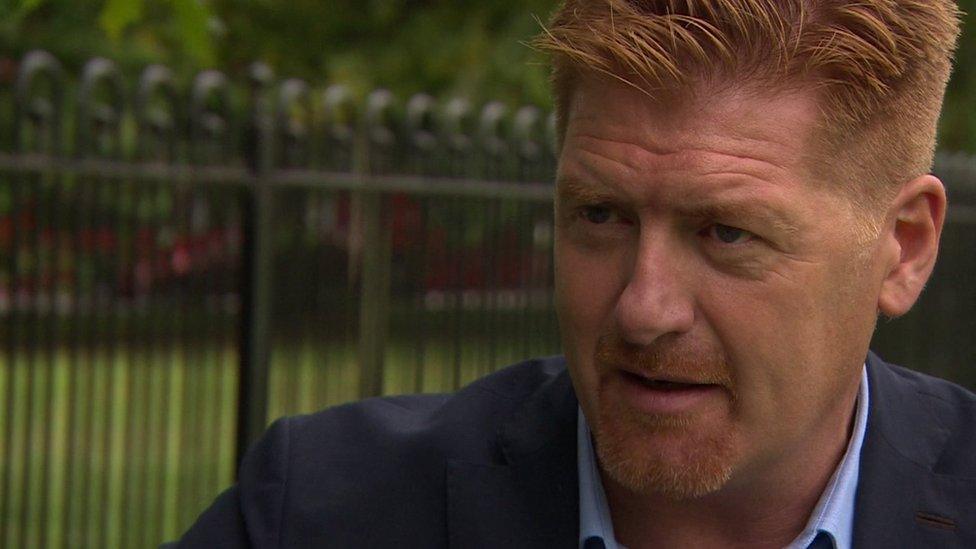
As the tactical commander in charge of London policing, Adrian Roberts said it was soul destroying watching rioters overrun communities
Former Croydon Borough Commander Adrian Roberts said he felt helpless many times as he watched events unfolding on the screens in front of him in the police control room.
Five years on, he recalls the moment when he thought the situation had escaped from police control.
"We had received some intelligence of looting taking place and we got there as the looters were entering the premises," he said.
"The looters made their getaway with a series of police officers chasing after them down the street, and I was watching this all on camera. The next thing I saw was two vehicles driving back running over police officers.
"I think for the first time in my career I felt, we've lost police officers. That just sent a cold chill through the rest of my body, but then remarkably those officers got up and they only suffered minor injuries.
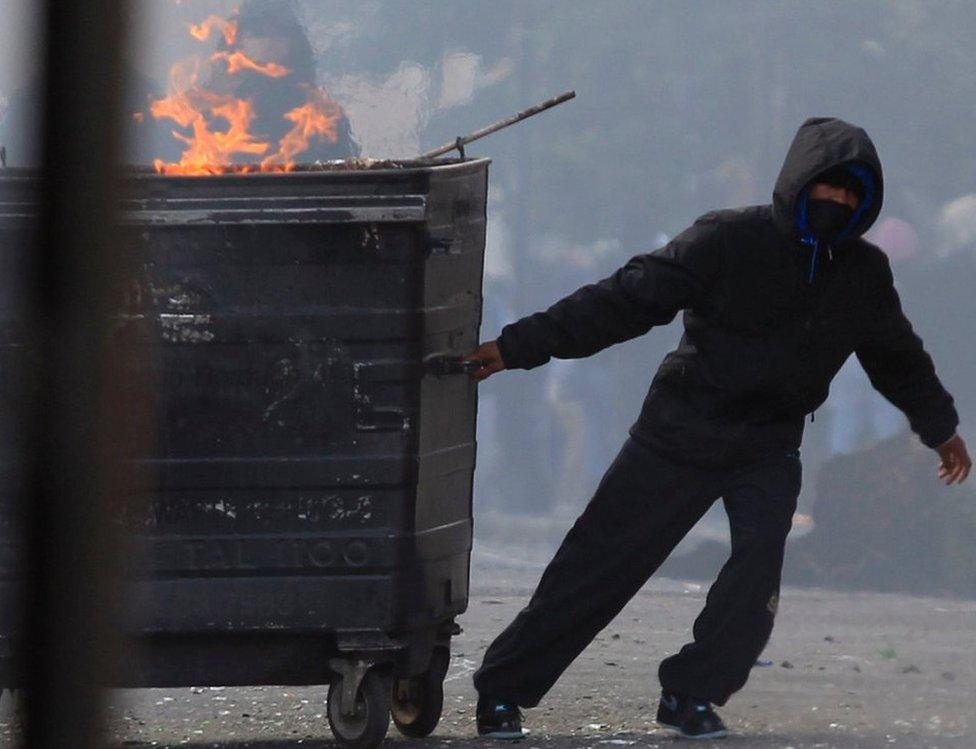
"That was a rude awakening, you felt responsible. You felt you were leading this and when you saw that, you just thought 'this is out of my hands and I can't do anything to put it right'."
Mr Roberts, who retired as a chief superintendent after 30 years in the Met, praised the bravery of the officers.
"The thing that still stands out for me now, from those four or five days in August, was we saw the very worst and best of society.
"On the one hand, we had brazen criminality and lack of regard to property and life in some respects, and tremendous losses by communities which were devastating.
"On the other hand, we had outstanding bravery and leadership by the emergency services, not just by police, and communities coming together. They were making a very clear statement that they are not going to tolerate this and we want to get back to normality as soon as possible."
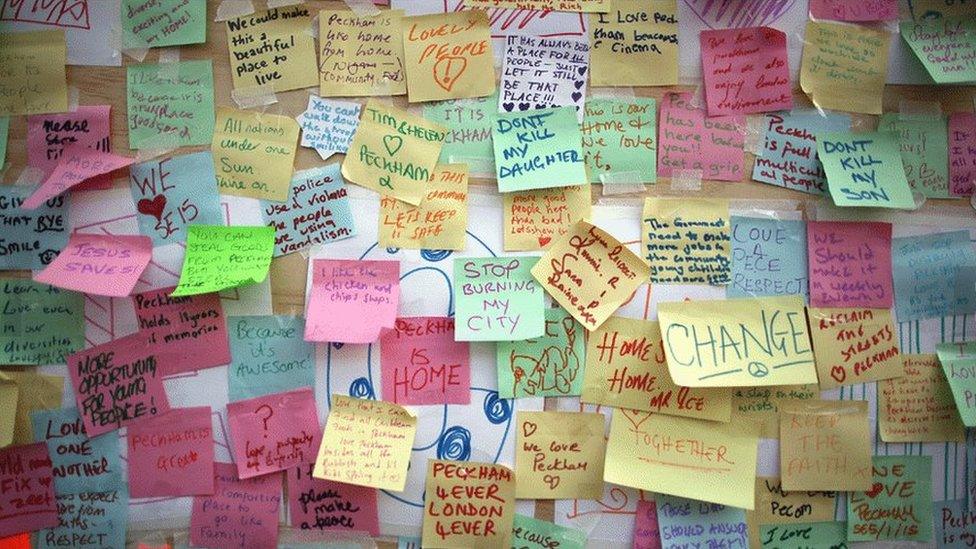
Communities across London shared messages of peace and togetherness in defiance of the rioters
"My job is to protect people and that was probably the only time in my career that it had come to the point where the police service was really stretched so far that we weren't able to achieve that everywhere.
"People, largely yes, but property, no.
"It felt awful. There came a point when I had to make a decision about life over property in some areas. That's not a difficult decision to make, but to see the videos of people, criminals, targeting outlets and stealing property and us not having the resources to deal with it, that was soul destroying."
On a personal level he found it particularly upsetting to see his borough suffer over the course of a couple of evenings.
"I was brought up here in Mitcham. Croydon was my local town. I was married in Croydon. My wife's from Croydon.
"I was at Croydon for the best part of four years, worked with the local communities and chief executives and we had really made a difference in Croydon. In a couple of nights this had all been threatened."
After the third night of riots on Monday 8 August, his wife called to chide him about not contacting her for hours during the unprecedented levels of disorder.
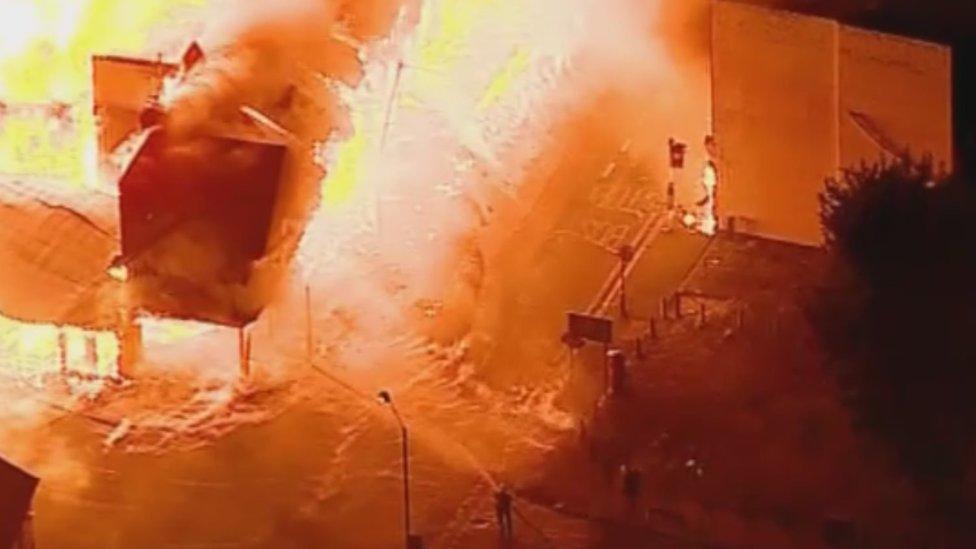
House of Reeves furniture store was one of the landmark buildings in Croydon that succumbed to the riots in August 2011
"[She] rang me up and told me off for not speaking to her for 12 hours on the phone, and was in tears, and said 'do you remember that was where we bought our first sofa, from Reeves Corner that got razed to the ground'.
"That got me very upset. Just like the carpet store in Tottenham, it was a symbol for local communities. It had always been there. It was somewhere we always used locally. And the fact that had been razed to the ground was evidence about how serious it was and how unique this whole tragic event was.
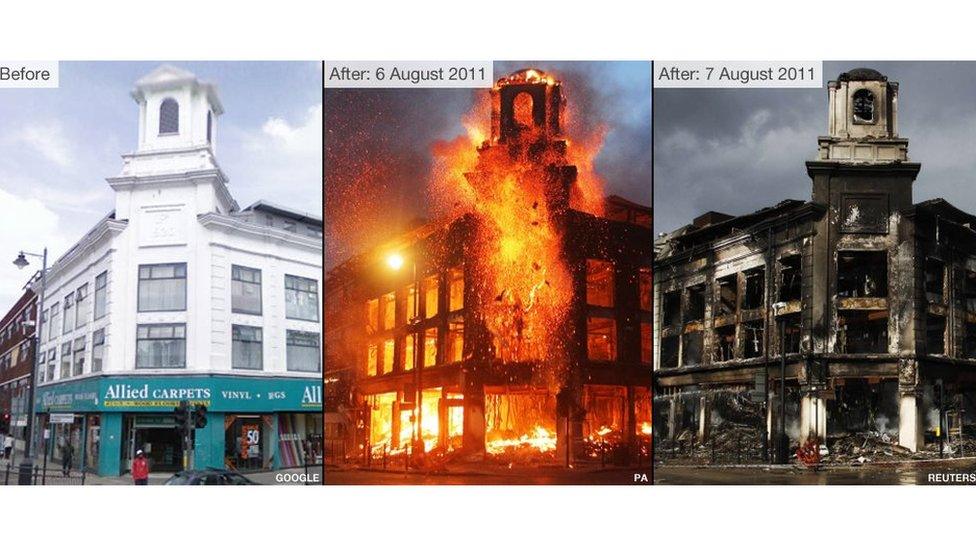
Carpetright in Tottenham, in the former Allied Carpets building, was set on fire during the first night of the riots in north London
"When I went back to Croydon at the end of the week and walked the town and saw the absolute devastation, thankfully it seemed as if the local communities had quickly restored themselves and moved forwards."
The loss of the 144-year-old furniture shop House of Reeves is something he says he will never forget.
"We had never experienced anything like this in the UK before, such widespread criminality, in such large areas, driven by social media.
"What doesn't make the press was the many places we managed to get to and save," he adds.
- Published4 August 2016
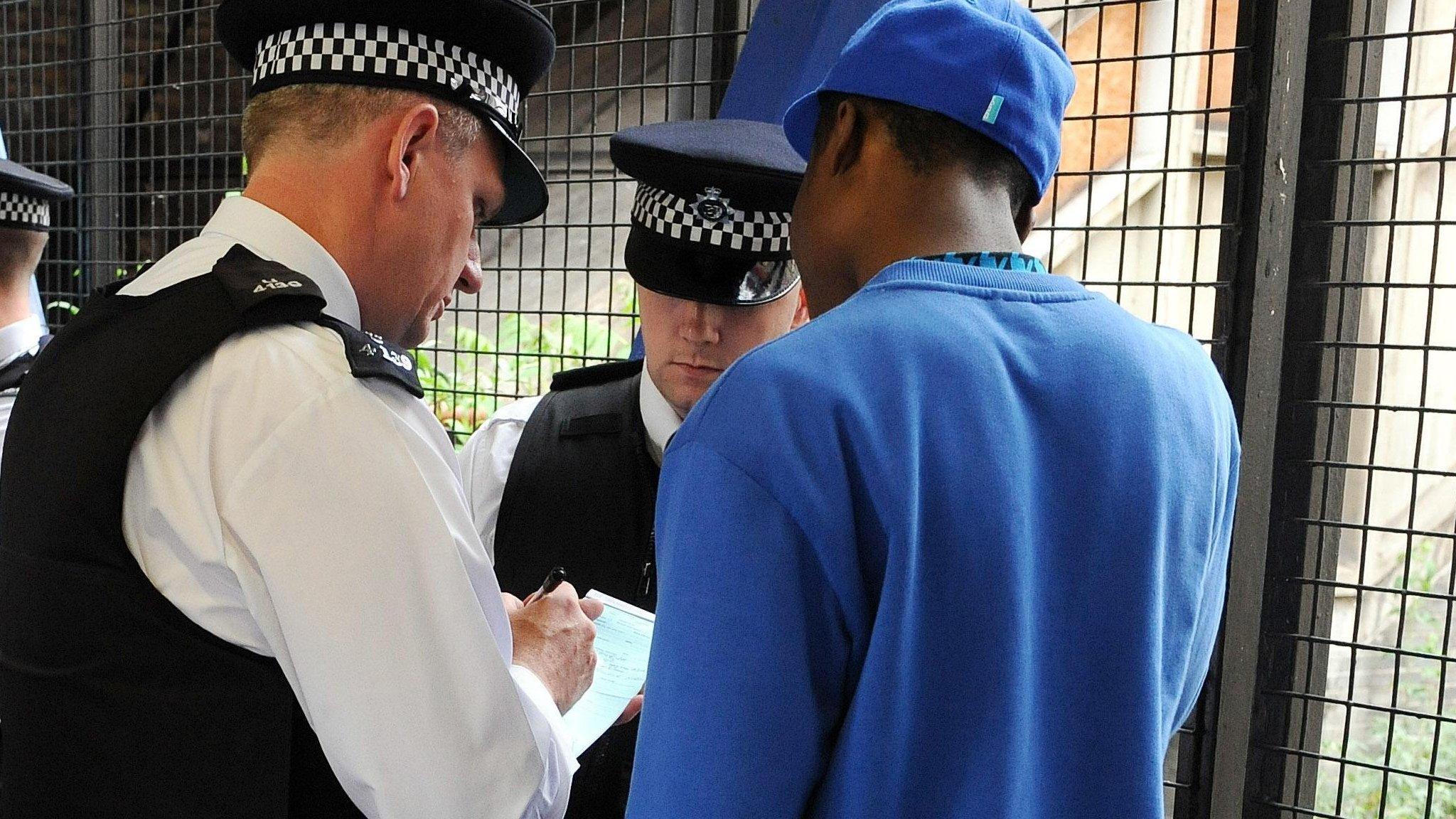
- Published4 August 2016
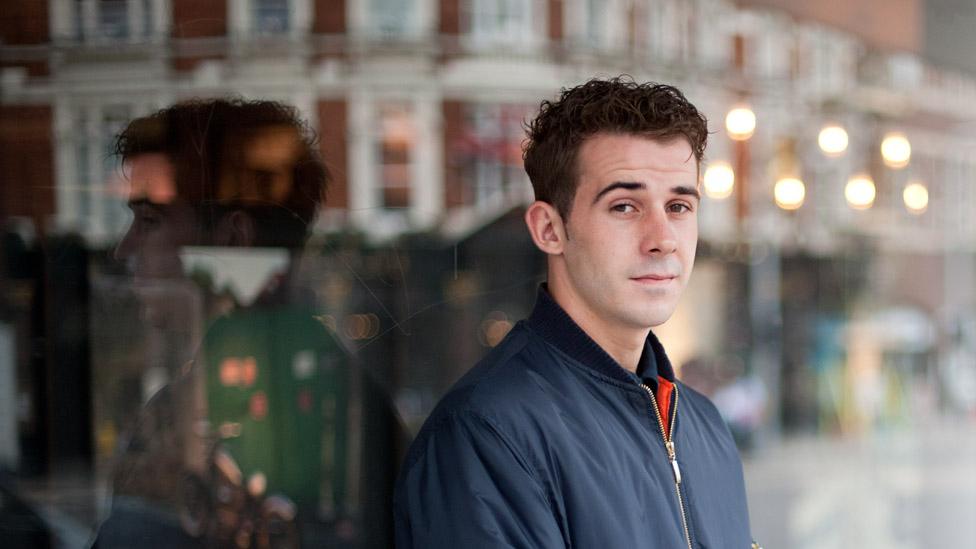
- Published10 August 2011